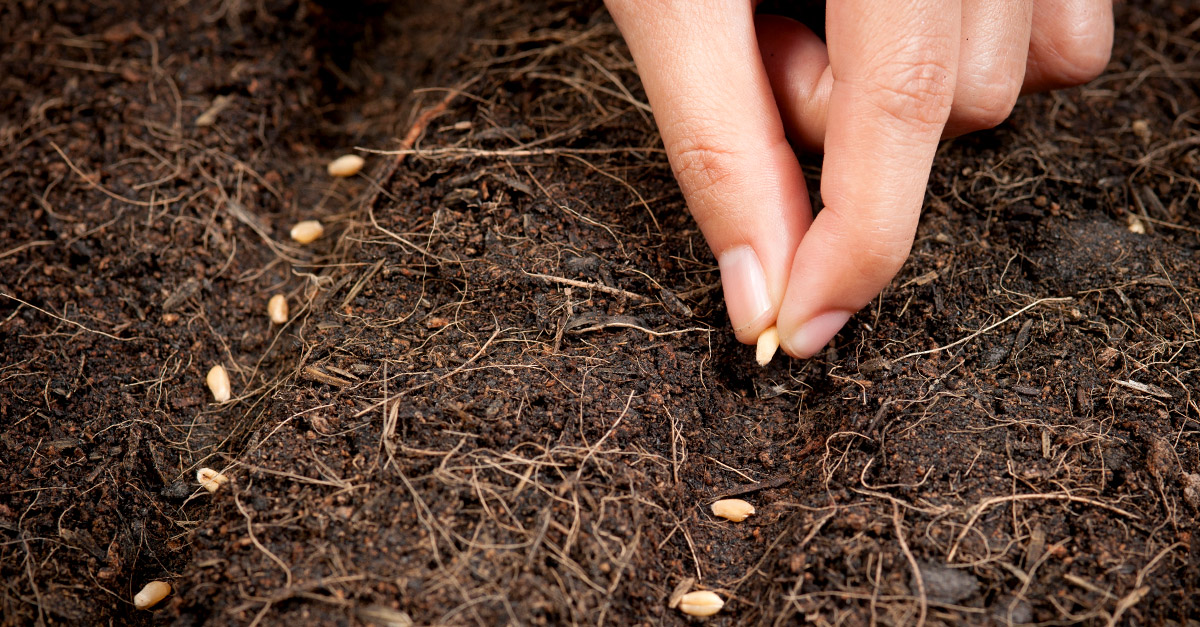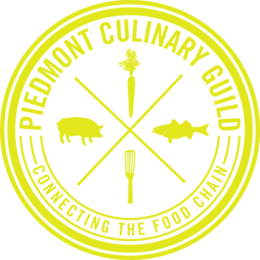Know your seeds!

If you are a farmer or gardener, your mailbox has started receiving its annual pilgrimage of seed catalogs. It can get more than a little confusing.
 There are many seed classifications for vegetables, herbs and flowers: heirloom, open-pollinated, hybrid, treated, pelleted, certified organic and genetically-modified(GMO). Understanding these terms will help you make important decisions about the varieties of seeds you select and the seed companies you support.
There are many seed classifications for vegetables, herbs and flowers: heirloom, open-pollinated, hybrid, treated, pelleted, certified organic and genetically-modified(GMO). Understanding these terms will help you make important decisions about the varieties of seeds you select and the seed companies you support.
If you plan on saving seed as gardeners and farmers have done for thousands of years, choose open-pollinated seed varieties. Open-pollinated seeds produce plants that have the same traits as the parent plant. Many of these varieties have adapted to local climates and growing conditions and have unusual shapes, colors and flavors. Heirloom seeds are open-pollinated. Heirloom or “old-timey” seeds are generally considered to be varieties that were common prior to the 1920’s when seed companies began buying seed stocks and developing hybrids.
Certified organic seed is produced from plants that are not grown with herbicides and pesticides and produced using sustainable practices. Organic seed may be both open-pollinated and hybrid.
Hybrid seeds produce a plant that is the result of selectively breeding different varieties through cross-pollination. A hybrid seed is developed to produce a plant that has specific traits of the parent plants used in the cross-pollination. Hybrids varieties may be bred for increased disease resistance, growth habit or other traits. Seeds produced by hybrid plants will grow plants that will resemble one of parent plants, not the plant that produced the seed. Therefore, hybrid seed varieties are not collected and saved by the gardener, but must be purchased again each year.
Seeds come in all shapes and sizes. Some are large and easy to plant, such as corn and peas. Some seeds are as fine as dust or irregular in shape which makes them harder to space properly in the planting row or pot. Seeds such as carrots, onions and lettuce can present such a challenge when sowing them in the garden. Seeds companies now offer pelleted seeds which are seeds coated with an inert clay that makes irregular shaped seeds round and small seeds large enough to see for properly spacing. Once planted, the clay coating dissolves to allow the seed to germinate and grow. Organic growers can only use seeds pelletized with approved coatings.
Seed may be listed a “treated” or “untreated”. Treated seed is dusted with a chemical agent to address common issues that affect germination and early plant growth. Have you ever seen pink corn, pea or bean seeds? These seeds are dusted with a fungicide powder to help prevent the seeds from rotting in cold damp soil. Special care is needed when handling these pesticide coated seeds – don’t breath the dust, wash your hands after contact, don’t let children plant them, and keep away from pets. Given the warnings, you may want to choose untreated seed and wait until the soil is warm before planting to avoid fungal diseases.
Organic growers do not use treated seed.
GMOs, or “genetically modified organisms,” are plants that have been genetically engineered with DNA from bacteria, viruses or other plants and animals. These combinations of genes from different species cannot occur in nature or in traditional crossbreeding and must be created in a laboratory. GMOs are engineered to withstand direct application of herbicide and/or to produce an insecticide. None of the GMO traits currently on the market have demonstrated increased yield, drought tolerance, or enhanced nutrition. Their main trait is to withstand large applications of weed killers.
A growing body of evidence connects GMOs with health problems, environmental damage and violation of farmers’ and consumers’ rights and are banned in many countries around the world. Although these types of seed are not generally available to the home gardener, in the United States, GMOs are in as much as 80% of conventional processed food that contain corn, soy and canola. 95% of sugar beets, zucchini and yellow squash are grown using GMO seed. Because of the controversy regarding GMO seeds, many gardeners choose not to buy from seed companies that are owned by the same companies that produce GMO seed.
The type of seeds you choose for your garden can be a mixture of both open-pollinated and hybrid varieties. Perhaps you need the disease resistance of a particular hybrid tomato for a successful harvest in your soil or like the early maturing hybrid cucumber.
At Windcrest Farm, a majority of the seed we plant for transplant sales and for crops is certified organic and heirloom (open-pollinated). We enjoy the different colors and shapes and the rich taste of heirloom varieties. We also enjoy discovering “volunteer” plants that spring up from last year’s plants, sometimes in the most unusual places.
Seed companies we like for organic, heirloom, open-pollinated, non-gmo seeds:
- Baker Seed Company (heirloom seed varieties dating to the 19th century)
- Sow True Seeds (an Asheville, NC company – open-pollinated seeds)
- High Mowing Seed (all certified organic)
- Seed Savers Exchange (large selection of heirloom seeds)
- Johnny’s Selected Seeds (excellent organic hybrid varieties)
Get planting!
Article written by Mary Roberts
Mary Roberts and Ray Tarlton are owners and managers of Windcrest Farm, a USDA Certified Organic farm and greenhouse in Monroe, NC
